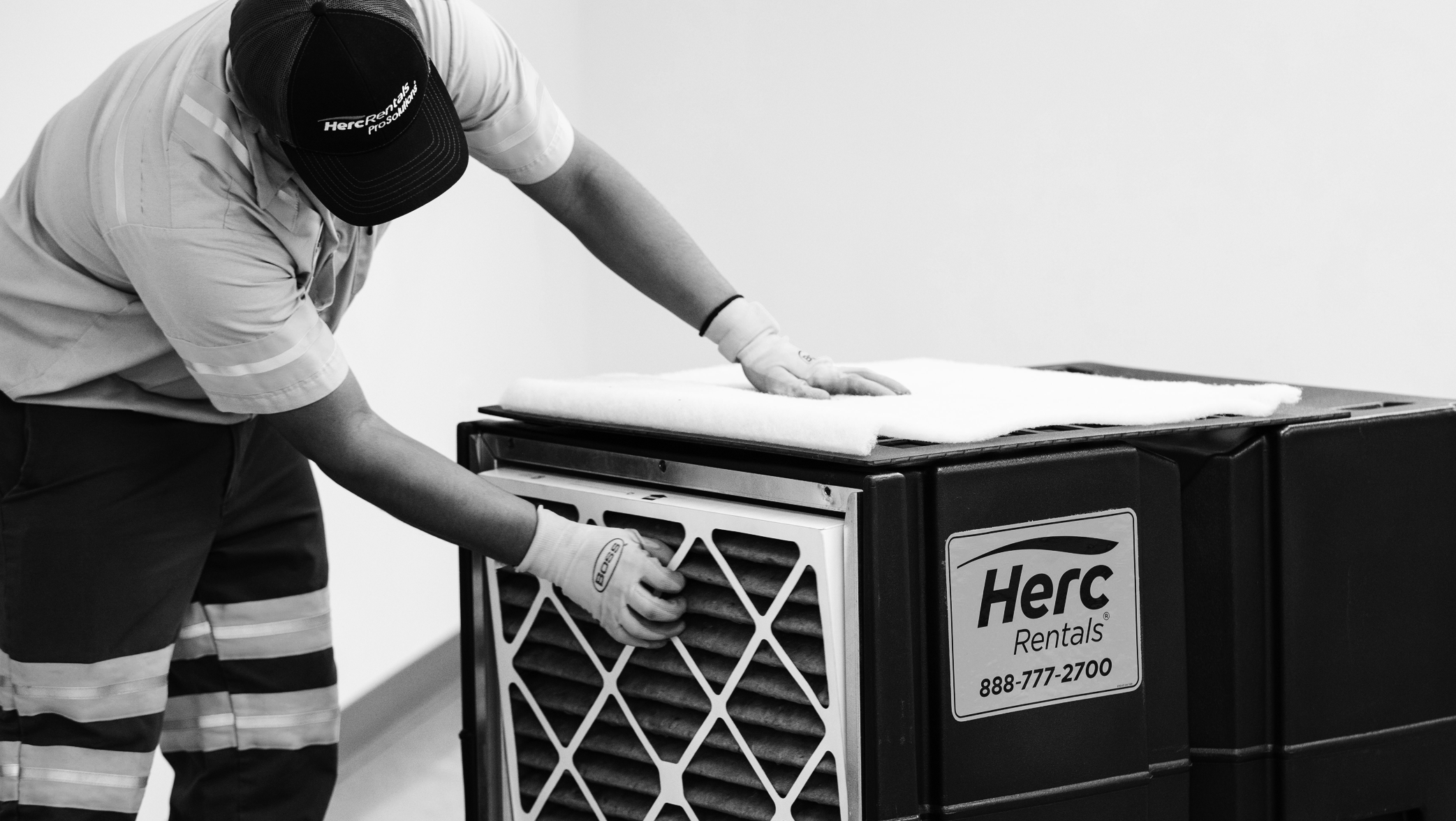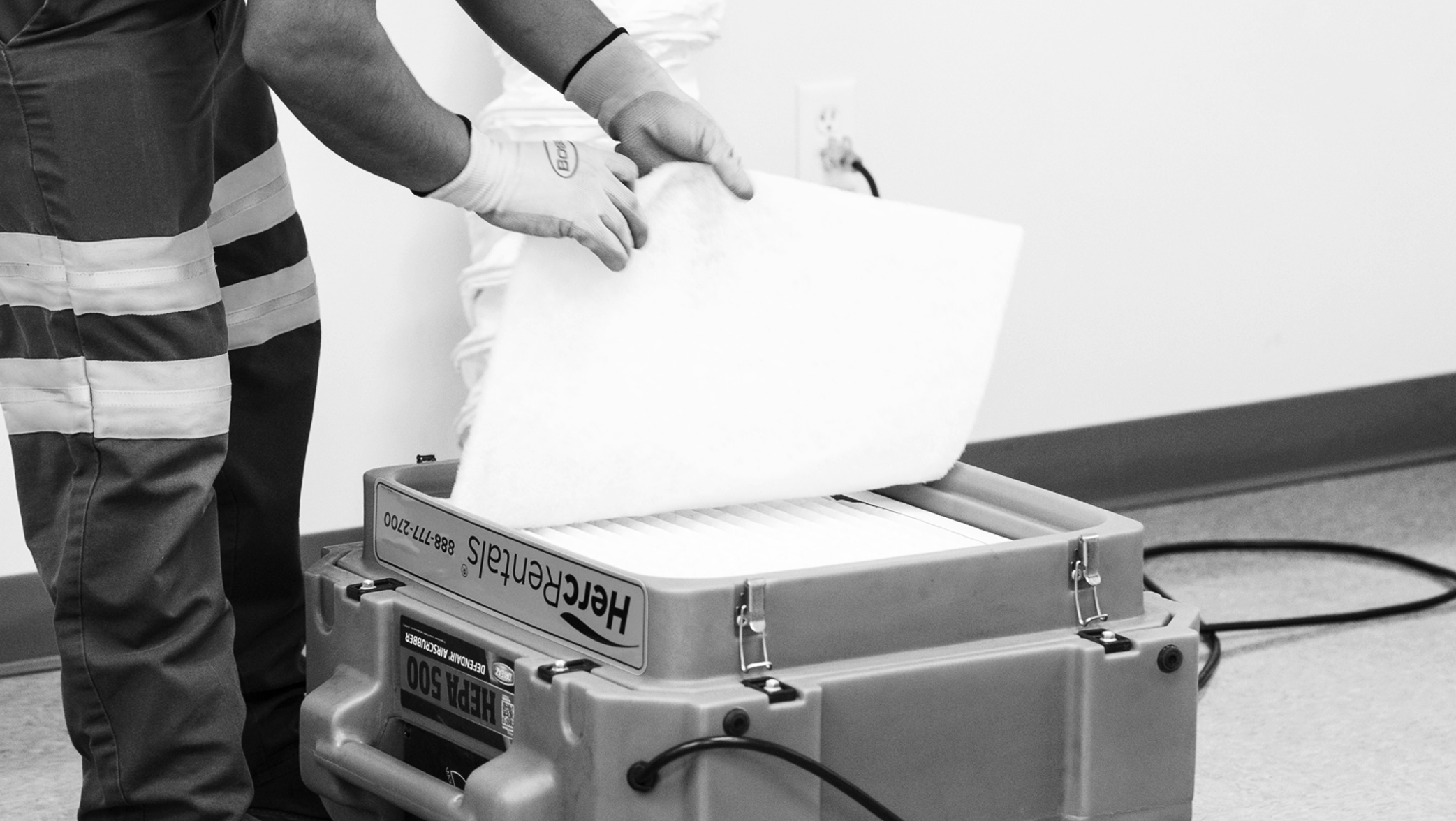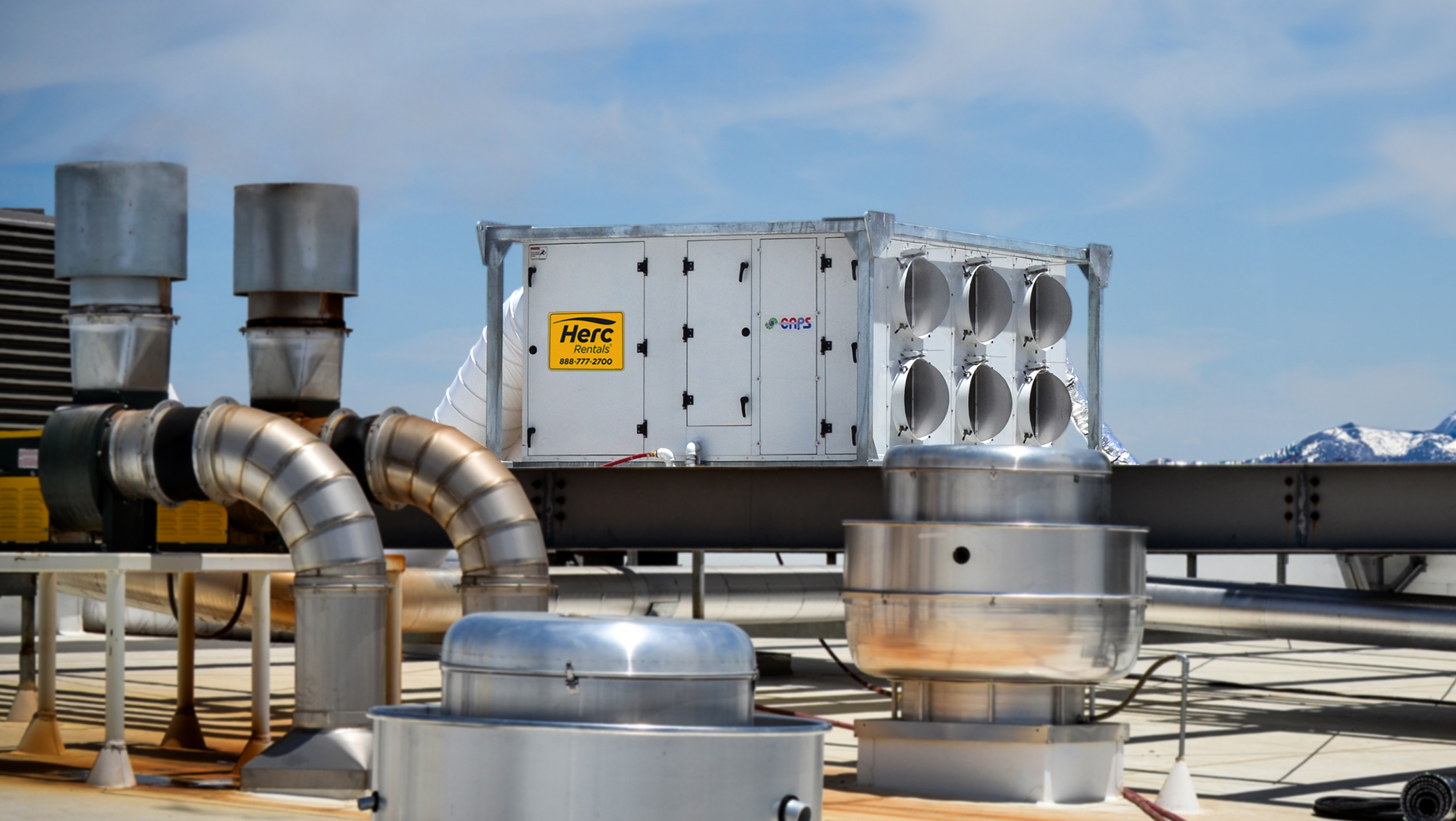An air scrubber is a portable filtration system that seizes airborne particles and improves air quality. Failure to properly clean the air can ultimately lead to worker health issues, lower job quality, and higher remediation costs, which is why having an air scrubber is extremely important.
Portable air scrubbers are designed to allow one operator to easily move the unit around. Most air scrubbers are taller than they are long, with a small “footprint.” They are a necessary part of maintaining air quality in places like hospitals, construction sites, universities, and more.
An air scrubber features high-rpm motors, high-efficiency backward-curved blowers, and upright type cabinet designs. While each air scrubber unit is different, all units follow a similar process. Our portable air scrubber rentals have three filters, which help to remove 99.97% of airborne particles. The different stage filters help extend the usage of the HEPA filter.
The Parts of an Air Scrubber
Like most filtration systems, an air scrubber uses purification filters to help remove contaminants as the air within the space is circulated through the system. Several times each hour, the scrubber draws the contaminated air from the space while also pumping in fresh air that is free of chemicals. The HEPA filters used in our units are able to filter a considerable amount more than a regular filter. The HEPA filter will capture small particles such as mold, bacteria, asbestos, lead, dust, and many other airborne contaminants. Air scrubbers will continuously clean the air and provide a clean, healthy and productive environment.
An air scrubber pulls in air, and the air travels through a series of filters. Learn more about these important pieces that make of an air scrubber:
Pre-Filters
In the first stage of filtration, the pre-filters capture the larger particles that are sucked in. Removing these larger particles helps the unit maintain airflow, process more cubic feet per minute, and increase the filtration efficiency.
Optional Carbon Filter
Many air scrubbers include an optional carbon filter, which captures gas and vapor molecules, which we otherwise know as odors. This is accomplished through a process called adsorption, where the gaseous molecules are physically attracted to the surface of the carbon.
Primary Filter
The final stage of filtration occurs when the primary filter removes the smallest particles from the air, and these particles can be as small as 0.3 microns in diameter. With a HEPA filter, the air scrubber is guaranteed to capture 99.7% of all 0.3-micron particles that pass through the filter.
Blower
Air scrubbers require a dependable blower, which pulls air through the filters and exhausts the filtered air out of the unit. The blower’s power level must work well with the efficiency of the installed filter system, as a blower that is too powerful may actually decrease the system’s efficiency.
When is an Air Scrubber Needed?
There are plenty of industries that need air scrubbers to deal with indoor air quality issues. If you are working or existing in a space that has a lack of clean, healthy air, a filtration system is the best solution for filtering out these airborne particles.
Restoration Projects
When your space experiences unexpected damage, a series of drying equipment rentals, restoration rentals, and air pollution units are needed to revitalize your site.
Water Damage
When water damage strikes, you will probably need a series of water damage dehumidifier rentals and air scrubbers to eliminate humidity, airborne bacteria, and other irritants. If water sits in your space for more than two days, you could begin to see mold spores, which is why a reliable air filtration system becomes paramount.
Mold
Mold thrives in places where there is an excess of humidity in the air. When mold issues aren’t properly handled, you could not only impact the structure of your building but also your health. Mold produces toxic substances that can attack cells in your body, leading to larger health problems. The term, sick building syndrome, is a worldwide issue that occurs when buildings suffer from toxic mold and bacteria issues, causing illness and chronic disease for those who work or reside in the building.
Medical Facilities
Hospitals and health care centers are common medical facilities that can suffer from sick building syndrome if the HVAC systems aren’t properly regulated. It’s especially important to offer emergency heating rentals in hospitals when HVAC systems fail, so the building and its patients aren’t affected by airborne toxins that can result from low-quality air. If the medical facility does undergo air quality issues, air scrubbers are the perfect rental for the job.
Construction Sites
Demolition projects and construction sites can be difficult areas for workers when the site is exposed to dust, chemical fumes, toxic gases, sewer damage, and more. In these cases, HEPA filters are ideal and will help capture these contaminants, so on-site workers can safely get the job done.
Are you interested in renting an air scrubber? Call us at
855-946-5596 or contact us directly from our website.


